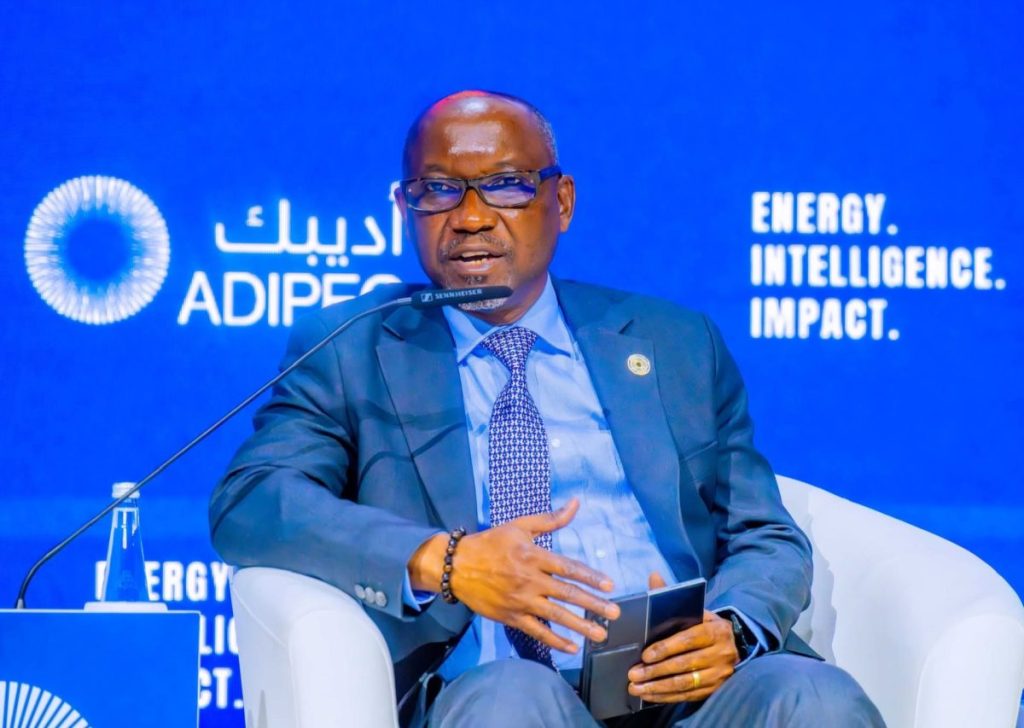
– “We cannot decarbonize to poverty”
Mkpoikana Udoma
Port Harcourt — Nigeria’s Minister of State for Petroleum Resources (Gas), Ekperikpe Ekpo, has urged the global energy community to adopt a pragmatic approach to energy transition that aligns with the development priorities of emerging economies, stressing that “we cannot decarbonise to poverty.”
Speaking at the 2025 edition of the Abu Dhabi International Petroleum Exhibition and Conference, ADIPEC, during the flagship Ministerial Panel titled “Global Shifts: Navigating an Era of Diverging Priorities,” Ekpo said the current global decarbonisation agenda must not come at the expense of energy access, industrial growth, and economic resilience in developing nations.
“As advanced economies accelerate decarbonisation, emerging markets like Nigeria face the dual challenge of meeting growing domestic demand while contributing to the net-zero agenda,” the Minister said.
“Our transition must be inclusive, equitable, and anchored on natural gas, the fuel for sustainable growth across Africa.”
Ekpo, who reaffirmed Nigeria’s commitment to energy transition under President Bola Ahmed Tinubu’s Renewed Hope Agenda, explained that natural gas remains central to the country’s industrialization and clean energy ambitions.
He said, “Nigeria is investing heavily in gas infrastructure, from processing to distribution to ensure that industries, households, and transport systems can access affordable, reliable, and cleaner energy. We believe this is the most realistic pathway toward achieving both development and decarbonization.”
The Minister emphasized the need for stronger international partnerships to unlock financing and technology transfer, particularly in the development of midstream and downstream gas infrastructure.
“Access to capital remains a major bottleneck for most developing countries,” he noted. “We call for deeper global collaboration to mobilise investments and build resilient gas value chains that can drive inclusive growth and energy equity.”
Ekpo also highlighted the importance of evolving regulatory frameworks to attract private sector participation and boost investor confidence in Africa’s gas markets.
“Regulations must match the speed of investment. We must create enabling environments that assure investors of stability, transparency, and returns,” he added.
He reaffirmed that Nigeria’s strategy focuses on leveraging gas as a transition fuel while expanding renewable energy access through hybrid systems, rural electrification, and industrial decarbonisation initiatives.
“With over 200 trillion cubic feet of proven gas reserves, Nigeria has both the responsibility and the opportunity to lead Africa’s clean energy transition,” Ekpo stated. “But we must do it on terms that protect our economy, create jobs, and uplift communities.”
ADIPEC 2025, one of the world’s largest energy gatherings, continues to serve as a global platform for dialogue on energy security, sustainability, and innovation, attracting ministers, CEOs, and industry leaders from around the world.
This article was originally posted at sweetcrudereports.com
Be the first to comment